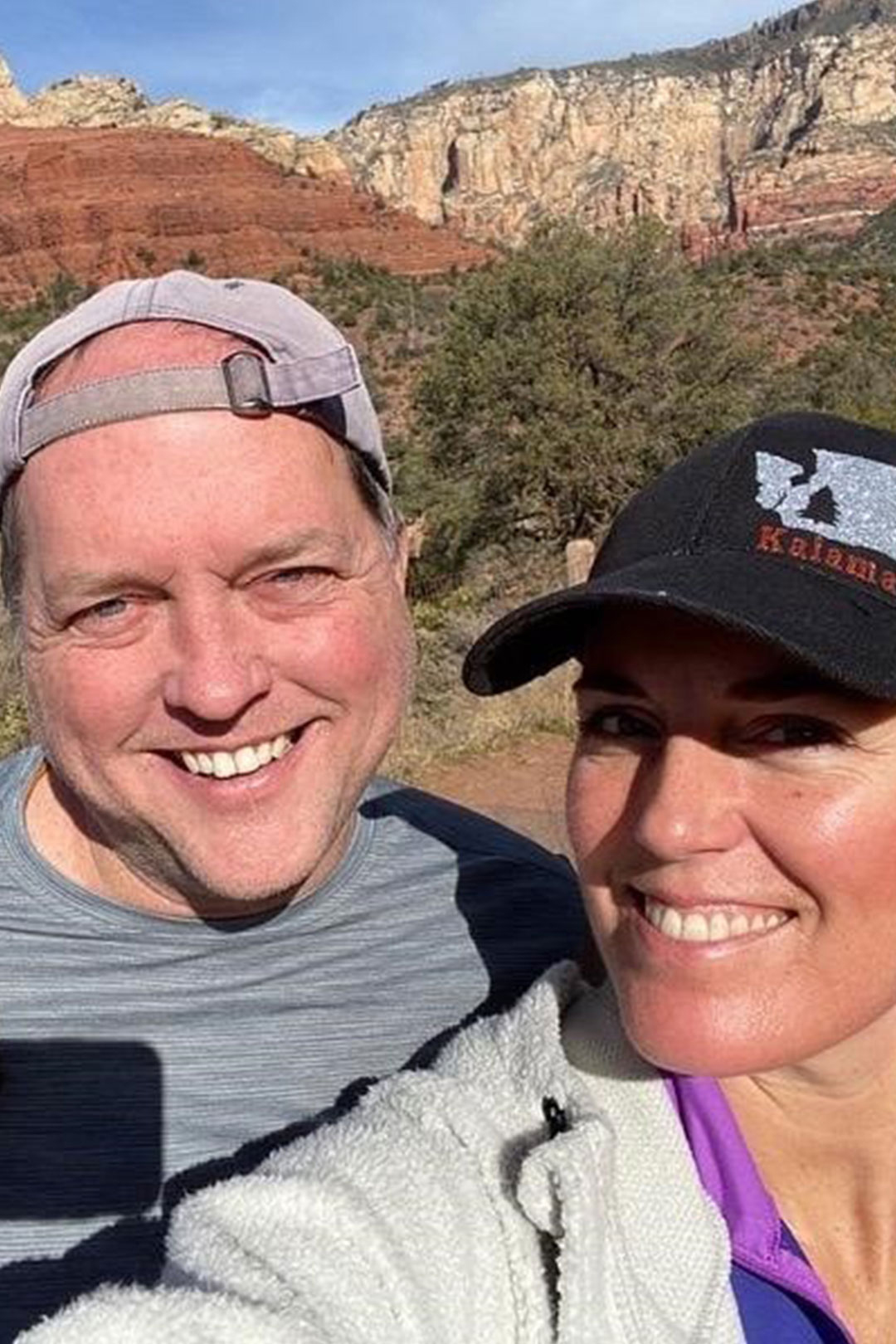In our series Real leaders. Real stories. Providence CFO Greg Hoffman discusses how he leads with curiosity and embraces lifelong learning.
Greg Hoffman follows a familiar rhythm to find perspective during turbulent times in executive leadership and in life: Keep one eye on the future with a nod to the past. Breathe in curiosity. Exude calm, embrace learning. Remain open. Hold your core values tight. And, when you have the chance, take in the splendor on a hike of the Columbia River Gorge.
Greg is two years into his role as Executive Vice President and Chief Financial Officer of Providence, his employer for the past seven years. He previously led financial planning and analysis for the nonprofit health care system that serves seven states across the West. Greg became Providence’s Chief Transformation Officer in March 2019, one year before the pandemic.
As a finance executive who has led national and global brands since the turn of the century, Greg is no stranger to trying times or helping organizations through transition. Prior to transitioning into the health care industry, Greg led customer retention and financial strategy and served as Chief of Staff for a national wireless carrier, T-Mobile, from 2004 to 2012 — a time when smartphones and social media were in their infancy, through the recession of 2008, and then the deployment of the fourth-generation (4G) broadband connectivity that changed media consumption and sharing. Greg also led corporate finance for a financial services corporation during a time of significant digital payment transformation that brought global economic challenges.
During times of change — whether evolutionary shifts or massive disruption — Greg looks for the constants, the core values and the opportunities to learn.
“I had the fortune to have worked with some great CEOs and CFOs during those times that responded to transformation and external shocks by being calm. Quickly recognizing what had changed, keeping the core values the same and bridging the vision of the past to the future,” Greg says. “I was able to hone a couple of skill sets that I’ve been able to leverage here at Providence.”
Working in finance often requires difficult decisions about managing resources. Health care organizations are facing talent and labor shortages and massive shortfalls. Budget cuts and job eliminations are necessary, and it’s emotional for those involved, including decision-makers.
“It’s tough. Change is tough,” he says. “I've had to go through significant change in multiple industries, and it’s never easy. When you have these big external shocks that drive the change faster, it makes it even harder.
“I keep a very realistic perspective. I lean into [Providence’s] core value of dignity. Everything comes down to treating each other with dignity, through tough times and tough decisions.”

Greg Hoffman
Everything comes down to treating each other with dignity, through tough times and tough decisions.
Like many CEOs and CFOs across industries, Greg is planning for financial recovery. “Looking where we’re going to be three to five years from now, what do we need to do differently and how do we navigate to get there?” he says. “We always keep an eye on the future as we steer our financial strategy during uncertain times. First, you have to recognize what’s changed permanently, from a baseline perspective, and then be disciplined to change directions on things where assumptions no longer hold true.”
He shares lessons for those looking to transition to a new field or just entering the C-level executive roles, or for anyone else who, like him, embraces the learning curve.
1. Surround yourself with the right people
Looking back, Greg was happiest in his career when he was working with teams of great people to accomplish large programs and solve challenges for the benefit of his community. He loves seeing people connect around a purpose.
“I’ve been fortunate to always join great organizations with great people and great leaders,” Greg says.
While some leaders have a few trusted advisors, Greg can credit dozens of mentors throughout his career. “It goes back to joining organizations with great leaders. I learned a lot just by observing and recognizing the immense talent, experience and insight that my fellow leaders have.”
For those looking to change industries, Greg encourages them to go for it, including lateral moves that open new possibilities. Lean into your core hard and soft skills, he says. They will transfer across industries. For him, that meant his core financial skill set. “So much of executive financial leadership comes down to making decisions on scarce resources, among competing values and objectives, and then being able to frame, articulate and value those tension points so that you can have a very effective influence.”
How EY can help
The Center for Executive Leadership
Providence Health & Services is a not-for-profit, Catholic health care system operating multiple hospitals and medical clinics across seven states, with headquarters in Renton, Washington. It was founded in 1859 and has 120,000 employees.
2. Change is another chance to learn
One of Greg’s earliest influencers was his high school English teacher, self-nicknamed “Sarge” for her discipline about grammar. Greg was strong in math and science but struggled in language arts. Instead of pushing back, he dove into the work. With Sarge’s help, he became a better writer and communicator, which he says enabled him to be more creative overall and helped him in his ability to lead.
Greg’s path through college reflects his dedication to continued personal growth and searching for purpose. Before pivoting to finance, he studied civil engineering and environmental engineering, and when he realized that his degrees required only a handful of humanities courses, he decided to earn a liberal arts degree first. “I spent time learning about the purpose of self, and I’ve carried that with me by always seeking out purposeful endeavors.”
He’s a lifelong learner and says it’s a mindset that serves everyone well. In any field or endeavor, when you see something new that you just don’t understand, don’t be afraid to look under the hood to see how it all comes together, he urges. When Greg’s family member was diagnosed with a chronic medical condition, he saw his health care system in action from the patient perspective. It’s natural for patients to get involved in the clinical care and ask questions. How does a kidney work? How does a bladder work? Extrapolating from that, Greg continues asking: How do you run an operating room? What can we learn about patient administration?
3. Have the wisdom to look back
“When something new and unfamiliar comes your way, you’ve got to have the curiosity to say, ‘Who has done this before?’”
With Providence still in what Greg considers a recovery mode, he faces the reality of today’s struggles affecting finance executives across industries, including the largest labor shortage since World War II and inflation rates that haven’t been seen since the 1970s. “Those that preceded me have had to navigate through tough times as well.”
You’ve got to have the curiosity to say, ‘Who has done this before?’ Those that preceded me have had to navigate through tough times as well.
Greg looks to the history and archives of the Sisters of Providence, who began treating the community nearly 170 years ago, steadfast in serving their mission through recessions, depressions, pandemics and war.
“We want to continue to be around, serving our communities and advancing our mission,” he says. “We serve our communities by developing capabilities and facilities, but you do have to get your recovery on a sustainable path first and foremost, and that’s our big focus area for 2023 and into 2024.
“It’ll be hard to predict exactly what quarter the recovery will occur, but when it does, knowing what we are going to do next, with confidence, will allow us to get to the future while we continue to deal with the present.”

